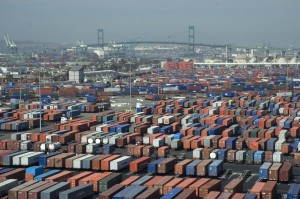 As the peak season approaches for shipping, retailers in the U.S. are monitoring the labor negotiations anxiously that are affecting over 20,000 West Coast workers at ports than handle over 40% of all goods shipped inside ocean containers.
As the peak season approaches for shipping, retailers in the U.S. are monitoring the labor negotiations anxiously that are affecting over 20,000 West Coast workers at ports than handle over 40% of all goods shipped inside ocean containers.
A contract of six years between the employers who run the shipping lines and port terminal and the dockworkers is set to expire July 1 at 5 p.m.
The contract covers workers across 29 ports from Washington state south to California and includes huge hubs such as Seattle/Tacoma and Los Angeles/Long Beach.
From July through the month of September, retailers like Target Corp. and Walmart Stores receives shipments via sea of goods sold during both the back to school period and the even bigger holiday shopping season.
The West Coast labor negotiations at the ports typically are extended beyond the expiration date of the contract. This particular session of negotiations is expected to run through until mid-July.
Representatives from both sides said that the negotiators will continue with their negotiating and the workers will continue working.
In 2002, a breakdown in contract negotiations resulted in a lockout of 10 days at ports along the West Coast. That work stoppage was estimated to cost the economy in the U.S. over $1 billion per day.
The NRF and the National Association of Manufacturers estimated in a report that was recently released that a work stoppage of 10 days at ports on the West Coast would cost the economy in the U.S. over $2.1 billion daily and result in over 169,000 jobs being lost.
The key issues the current talks have included increasing costs of healthcare and using outside contracted labor.
